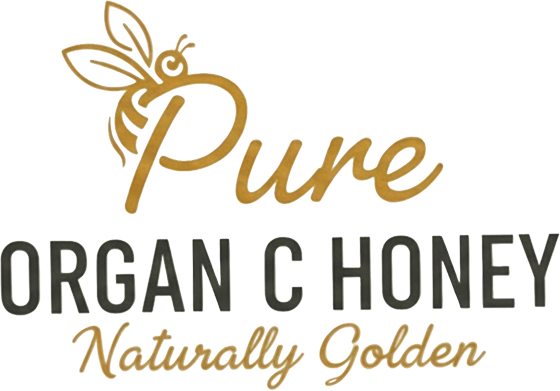Focus on the prebiotic properties of honey and its role in improving digestive health.
1. Introduction to Gut Health and Digestion
1.1 Importance of Gut Health
Gut health is a critical component of overall well-being, influencing not only digestive processes but also immune function, mental health, and metabolic regulation. The gut microbiota, a complex community of microorganisms residing in the gastrointestinal tract, plays a pivotal role in maintaining this health. A balanced gut microbiome is essential for effective digestion, nutrient absorption, and the prevention of gastrointestinal disorders. Disruptions to this balance, known as dysbiosis, can lead to various health issues, including inflammatory bowel disease, obesity, and even mental health disorders.
1.2 Overview of the Digestion Process
The digestion process begins in the mouth, where food is mechanically broken down and mixed with saliva. It continues in the stomach, where gastric juices further decompose food into a semi-liquid form. The small intestine is where most nutrient absorption occurs, aided by enzymes and bile. Finally, the large intestine absorbs water and forms waste products for excretion. Throughout this process, the gut microbiota assists in breaking down complex carbohydrates, synthesizing vitamins, and protecting against pathogens.
2. What is Pure Organic Honey?
2.1 Definition and Characteristics
Pure organic honey is a natural sweetener produced by bees from the nectar of flowers. It is characterized by its unprocessed state, retaining its natural enzymes, antioxidants, and nutrients. Unlike conventional honey, which may undergo pasteurization and filtration, organic honey is minimally processed, preserving its beneficial properties.
2.2 Types of Honey and Their Sources
There are various types of honey, each with unique flavors and health benefits, depending on the floral source. For instance, Manuka honey, derived from the Manuka tree in New Zealand, is renowned for its potent antibacterial properties. Other varieties, such as clover and wildflower honey, also offer health benefits, including antioxidant and anti-inflammatory effects.
3. Prebiotic Properties of Honey
3.1 Definition of Prebiotics
Prebiotics are non-digestible food components that promote the growth and activity of beneficial bacteria in the gut. They serve as food for probiotics, the live microorganisms that confer health benefits when consumed in adequate amounts. Prebiotics play a crucial role in maintaining gut health by enhancing the composition and function of the gut microbiota.
3.2 Non-Digestible Oligosaccharides in Honey
Honey contains non-digestible oligosaccharides, such as fructooligosaccharides (FOS) and inulin, which are considered prebiotics. These compounds resist digestion in the upper gastrointestinal tract and reach the colon, where they are fermented by beneficial gut bacteria. This fermentation process produces short-chain fatty acids (SCFAs), which are vital for gut health.
3.3 Mechanism of Action in the Gut
Upon ingestion, the oligosaccharides in honey pass through the digestive system without being absorbed. In the colon, they are fermented by beneficial bacteria, leading to the production of SCFAs. These SCFAs serve multiple functions, including providing energy to colon cells, regulating inflammation, and enhancing the absorption of minerals.
4. Role of Honey in Supporting Gut Microbiota
4.1 Nourishing Beneficial Bacteria
The prebiotic properties of honey help nourish beneficial bacteria, such as Lactobacillus and Bifidobacteria, which are essential for a healthy gut microbiome. By providing a food source for these bacteria, honey promotes their growth and activity, contributing to a balanced gut environment.
4.2 Balancing Gut Microbiome
A diverse gut microbiome is crucial for optimal health. Honey’s prebiotic effects help maintain this diversity by supporting the growth of beneficial bacteria while inhibiting harmful pathogens. This balance is essential for preventing dysbiosis and associated health issues.
4.3 Impact on Harmful Bacteria
Research indicates that certain types of honey possess antimicrobial properties that can combat harmful bacteria, such as Escherichia coli and Salmonella. By reducing the prevalence of these pathogens, honey contributes to a healthier gut environment and lowers the risk of gastrointestinal infections.
5. Health Benefits of Honey for Digestion
5.1 Alleviating Digestive Disorders
Honey has been traditionally used to alleviate various digestive disorders, including diarrhea and constipation. Its mild laxative effect can help regulate bowel movements, while its antimicrobial properties may reduce the duration of bacterial diarrhea.
5.2 Enhancing Nutrient Absorption
The SCFAs produced during the fermentation of honey’s oligosaccharides enhance the absorption of essential nutrients, such as calcium and magnesium. This improved nutrient uptake is vital for overall health and well-being.
5.3 Supporting Immune Function
A healthy gut microbiome is closely linked to immune function. By promoting the growth of beneficial bacteria and inhibiting harmful pathogens, honey supports the immune system, helping the body defend against infections and diseases.
6. Scientific Evidence and Studies
6.1 Overview of Research Findings
Numerous studies have highlighted the prebiotic potential of honey. Research has shown that honey can increase the abundance of beneficial gut bacteria while reducing harmful strains. For instance, a study demonstrated that honey consumption led to a significant increase in Lactobacillus and Bifidobacteria populations in the gut.
6.2 Case Studies and Clinical Trials
Clinical trials have further substantiated the digestive health benefits of honey. One study involving patients with gastrointestinal disorders found that those who consumed honey experienced improved symptoms and a more favorable gut microbiota composition compared to those who did not.
7. Conclusion
7.1 Summary of Benefits
In summary, pure organic honey serves as a potent prebiotic that boosts gut health and digestion. Its non-digestible oligosaccharides nourish beneficial bacteria, promote a balanced gut microbiome, and combat harmful pathogens. Additionally, honey alleviates digestive disorders, enhances nutrient absorption, and supports immune function.
7.2 Recommendations for Incorporating Honey into Diet
To reap the benefits of honey, consider incorporating it into your daily diet. Use raw, organic honey as a natural sweetener in beverages, yogurt, or oatmeal. However, it is essential to consume honey in moderation, as excessive intake can lead to increased sugar consumption. By integrating pure organic honey into a balanced diet, you can support your gut health and overall well-being.
